Solar company Enpal has just become Berlin’s state winner in the KfW Entrepreneurs’ Award. Enpal CEO Mario Kohle on fossil fuel autocrats, the benefits of borrowed solar – and Enpal investor Leonardo DiCaprio.
KfW recently honored Enpal with the KfW Entrepreneurs‘ Award. And for the Financial Times, you are the fastest-growing energy company in Europe – with an average growth rate of almost 400 percent over the past three years. Across all sectors, you are in 5th place. How proud do such awards make you?
Mario Kohle: When we heard about it, we were a bit proud. But when we’re in the shower in the morning, we think about other things. We’re concerned with how to give our customers the best possible experience and the best possible product, and how to build a great company. In reality, we’re just getting started: as yet, the climate crisis barely notices that we exist. We won’t stop until we’ve stopped heating the planet and completely freed ourselves from the drip of fossil fuel imports from authoritarian states. That means we still have 99 percent of our way to go.
Your business model is based on the fact that you don’t offer solar systems for sale, but for rent, including maintenance. How did you come up with the idea?
Almost everyone wants to produce their own clean energy. I hardly know a homeowner who hasn’t thought about a solar installation. But then the complexity trap snaps shut: you first have to find a trustworthy installer who has both the goods and the craftsmen – that alone is difficult in these times of empty warehouses, uncertain supply chains and a shortage of skilled workers. And most people’s passion for inverters and kilowatt-peak is limited. Then you have to run from bank to bank to get them to give you a loan. Then you have to go to the notary, because the bank wants to be entered in the land register as security for the loan. And so it goes on.
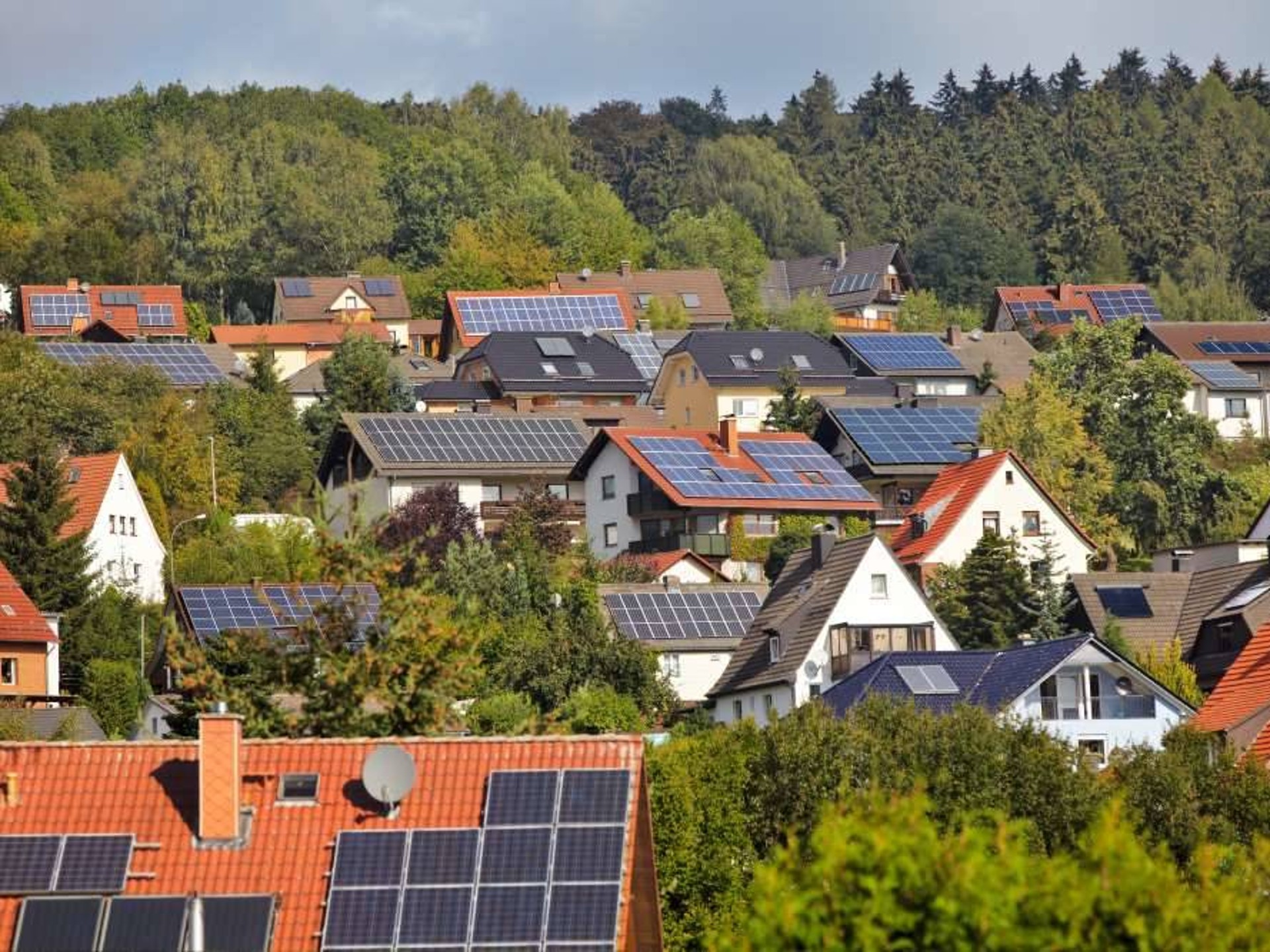
Borrowed solar
Enpal rents out solar systems - on request, there is also a power storage unit, wallbox and green electricity tariff.
And with Enpal, you want to simplify that.
Solar energy has to be simple for the customer. That’s why we buy directly from the manufacturer, train our own permanent craftsmen, look for favorable financing ourselves, and so on. In principle, we take everything off the customer’s hands. The customer gets his solar system, his storage unit and his e-car charging station for 0 euros acquisition cost and pays a fixed monthly rent instead. We look after the system for 20 years and replace it free of charge if anything should break at any time. The customer has full cost transparency – an all-round carefree package.
Enpal was founded in 2017 by you, Viktor Wingert and Jochen Ziervogel. Is there something like a founding myth of Enpal, an initial spark? How did the founders get together and come up with the idea for Enpal?
I had sold my first company after a long time. During that time, I realized that I am quite an idealist. I enjoy being an entrepreneur much more when I see a positive goal behind what I do. For me, it’s a dream to build a company where I combine entrepreneurship with something that helps the next generation. I am not someone who jumps to the next company every three years because the next opportunity is lurking there. Enpal is my life’s work. You need companions who accompany you through all the ups and downs. Jochen and Viktor are two of my longest and best friends.
On your website you write: ”Do we want to continue to give our money to the big power companies instead of becoming independent from dirty energy? Do we want to continue to watch the destruction of our planet? With Enpal, we turn all homeowners into their own producers of green and affordable energy.” How important is the David vs. Goliath myth?
We need to free ourselves from the fossil fuel oil and gas corporations. There is no way around that. The energy transition has long since ceased to be a project of a few ecologists, but is fundamental to our sovereignty and independence. With fossil fuels, we will always be susceptible to blackmail, as we are currently seeing again in the Ukraine conflict, and are at the mercy of rising prices for electricity, heat and fuels.
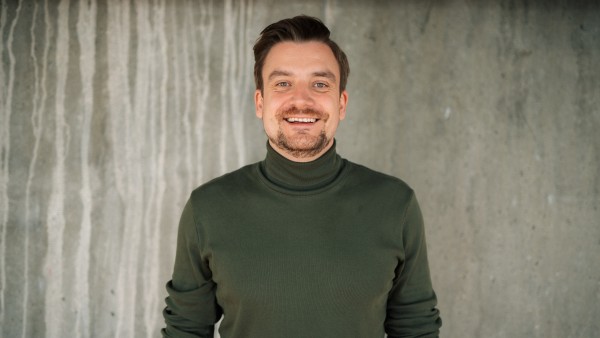
Mario Kohle
Enpal's CEO Mario Kohle founded the startup Käuferportal (now Aroundhome) in 2008 after completing his business studies and went straight from student to CEO. In 2017, he founded Germany's first green tech unicorn, Enpal.
You have already raised a total of more than 800 million euros. That makes you Germany’s first Green Tech Unicorn, meaning you are valued at more than a billion dollars. In addition to Zalando, Sparkasse, IngDiba and DKB have invested with you. You also have prominent individual investors like Alexander Samwer. But how did you convince Hollywood star Leonardo DiCaprio to join you?
The connection comes via our investor Princeville Climate Technology, a California-based fund specializing in climate technology, which is advised by Leonardo DiCaprio, among others. He is not only an actor, but has also been known as an environmental activist for many years.
Alexander Samwer describes you as a “new, decentralized energy provider”. How would you yourself describe Enpal’s business model in three sentences?
I can even do that in three words: green, cheap, independent. And if you’ll allow me a fourth word: cool. What I mean by that is: Six weeks after signing the contract, our installers will come and build your solar system on the roof, your electricity storage unit in the basement and your e-car charging station in the garage. In addition, you will receive an intelligent energy manager, i.e. software that allows you to keep an eye on and control your energy flows. It’s like Tesla: The hardware remains the same, but the software is crucial. Because it’s always being renewed, and you’ll always be on the cutting edge when politics allows new possibilities, for example, to share your electricity with your neighbors or to sell your storage power to the grid.
When it comes to financing, you manage that. How does that work?
As an individual homeowner, you often don’t have much to say to the banks. We, on the other hand, can bundle several thousand solar systems and storage tanks into one package. Added to this is our extensive quality management: All steps in the installation process are photographed, documented and checked. This gives us a lot of negotiating power to negotiate cost-effective financing. Anyone who installs more than 15,000 solar systems a year can talk differently about a loan than someone who only wants to finance his own private solar system. By the way, part of our loans come from KfW.
How do you cushion the risks?
The good thing for the customer is that he doesn’t have to worry about the risks. Because we take all the risks off their shoulders. Nowadays, inflation comes to mind first and foremost. To guard against this, we negotiate long-term fixed interest rates with our financing partners, for example. After all, solar systems are not a quickly consumed consumer good, but an economically sensible investment. That’s why the risks are manageable.
In your advertising, you promise customers “Simply save money”. However, studies show that the financial difference between households with rented and purchased solar systems over 30 years is relatively small. How do renters of solar systems differ from buyers?
The cost of electricity, heat, and fuel goes up and up – if only because of inflation. Add to that economic warfare because fossil fuel dictators are blackmailing us, and the bill for electricity, gas, and fuel skyrockets. We have a red alert on gas. So solar energy is always a good deal in the long run. If you also charge your e-car with cheap solar power from your own roof, you usually save several hundred euros in the first year. For every 100 kilometers you drive, you pay 13 to 16 euros for a gasoline-powered car, about six euros for grid electricity, but only three euros for your own solar power. For your savings, it does not matter whether you rent the solar system or buy and finance it yourself. Renting is just easier, because you have an overview of all costs and can conveniently watch your energy flow in your app.
How many customers do you have, how many systems have you already installed?
When we started as a small startup five years ago, we were only able to acquire 30 customers in the entire first year. Today, we already have well over a thousand new customers – every month! We want to continue to grow and are therefore hiring more craftsmen on a continuous basis. So if you are reading this interview and are a skilled craftsman: Please apply for a job with us!
How has the demand for rental equipment developed over the last ten years? Is the USA setting the trend?
The trend toward renting solar systems actually comes from the USA. The model is already widespread there, although not all general conditions are the same. In the meantime, the rental of solar systems has also become firmly established on the market in Germany, with many reputable providers and high demand. However, we are not attached to the rental model, come what may. At Enpal, we will always offer what the customers want. The main thing is to make ourselves independent of fossil energy.
What do you do better than your competitors, for example DZ-4, Cello Solar, Klarsolar?
Every solar system is a good solar system, no matter who it comes from. The main thing is to make yourself independent of fossil energy and rising prices. But there are a few things we do that are special: We have our own purchasing department directly from the manufacturer, and we build most of the systems ourselves. We have our own Enpal assembly company with over 1,000 permanent employees, and our own training center. In addition, we change the electricity meters ourselves on the day of installation, which means that you don’t have to rely on the network operator to change the electricity meter. Some grid operators have run out of electricity meters at the moment. Then people already have their solar system on the roof, but then have to wait for months until the grid operator can finally change the electricity meter. With Enpal, you save time and nerves.
You work with local craftsmen, but also train your own craftsmen as solar installers. Critics accuse you of displacing local businesses in the long run.
There is a shortage of skilled workers everywhere. Anyone who is a solar installer or electrician today has a secure job for the next 30 years. That’s why we need all hands on deck, and we rely both on qualifying our own skilled workers and on working with partner companies. There’s no contradiction there. Our craftsmen are the true heroes of the energy transition. For them, it is not only Fridays for Future, it is Every Day for Future.
If you outline the development of Enpal in brief: Where did the company start, where are you now, where do you want to be in ten years?
We started very small. For us, honesty is important: We told customers that we are still a young startup, still taking our first steps. Customers appreciate it when you’re honest. This allowed us to learn quickly. We now install well over a thousand solar systems every month, in a complete integrated package with storage, e-car charging station, green electricity tariff and our smart energy manager. We are now also looking more closely at the heating sector and, of course, want to continue to grow. Our vision is to connect people to the largest renewable community in Europe.
Within five years, you have become a major player in the market, with more than 2,700 employees, including 1,000 in installation, and estimated sales of 400 million euros in 2022. In your eyes, what is the most important factor that has enabled you to achieve this so quickly?
For me, the decisive factor was the idea of “first principle thinking”: It’s about considering how something should be – and not how it already is. In other words, not thinking from the status quo and thinking about how you can make what already exists a little bit better. Instead, we should ask ourselves: How should something ideally be? How can we really solve a problem? Then you can see the steps to get there much more clearly. When I understood how enormous the human task of the climate crisis is, I wanted to create a solution for the most climate-neutral home possible that, from people’s point of view, is simply better, more comfortable, cheaper than before. Enpal was born from this idea. And this principle of thinking from the end helps me to this day not to get caught up in the nitty-gritty. This is how you see the forest and not just the trees.
What was the most important decision you made along the way?
There are some decisions that didn’t come easily to me, but in retrospect turned out to be the right strategic course. We started early on to build up our own assembly company with permanently employed craftsmen, with whom we now erect the majority of our plants – in addition to our external partners. We have also set up a subsidiary in China and buy directly locally, without intermediaries. Both of these things help us enormously now, because otherwise there would be a shortage of people and goods everywhere. We, on the other hand, have many craftsmen with us, and the warehouses are full.
What do you have planned as your next steps?
We are currently taking a close look at the heating sector. Gas is on red alert, and we want to help there as soon as possible. Otherwise, we want to build even more solar plants, storage and charging stations than before, and continuously improve our Enpal app. We also want to gain a foothold in other countries. Climate protection is a global market with eight billion customers.
How did KfW finance you, and how did that help you? Would your company have grown so quickly even without this financing?
KfW has already supported us with one of its on-lending programmes, the ”Renewable Energy – Standard”, as part of a syndicated financing with other banks. We are all the more pleased that we are now able to finance our goods purchasing and working capital for the third time with the “Venture Tech Growth Financing” programme of KfW and a commercial bank. The VTGF programme is an important companion for our strong growth. We are honored to be able to work in partnership with such renowned and established financial institutions as KfW to implement our growth plans and are very much looking forward to further joint projects in the future.
Published on KfW Stories: 20 October 2022

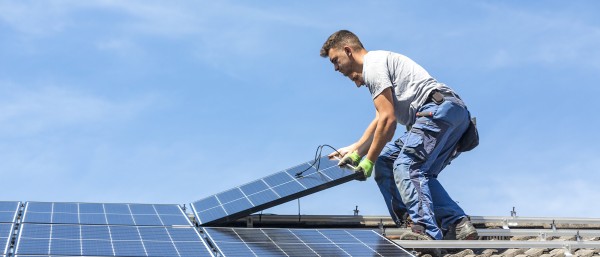
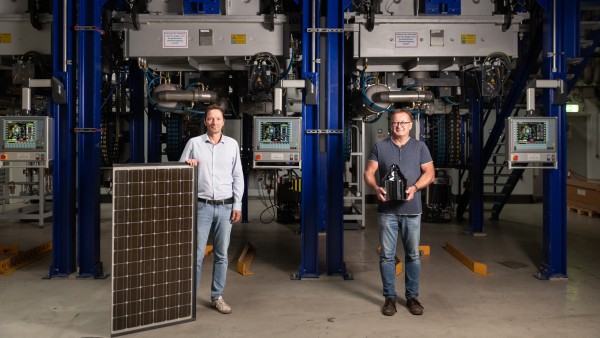
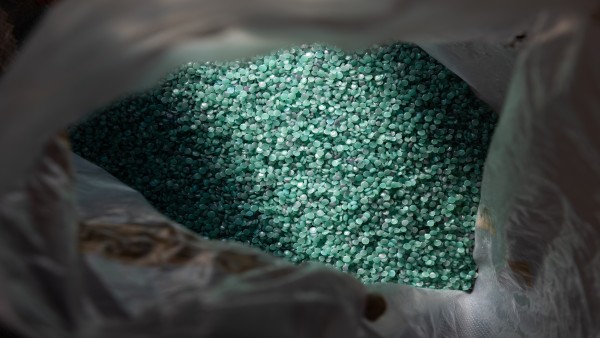
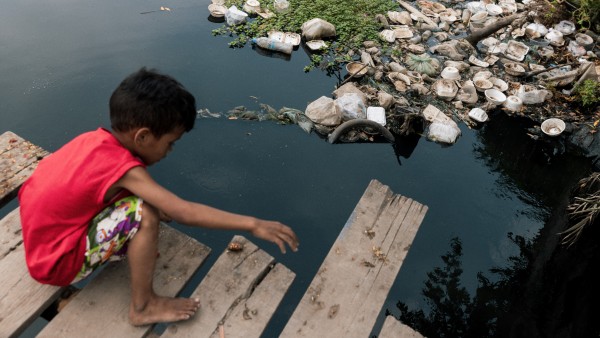
Data protection principles
If you click on one of the following icons, your data will be sent to the corresponding social network.
Privacy information